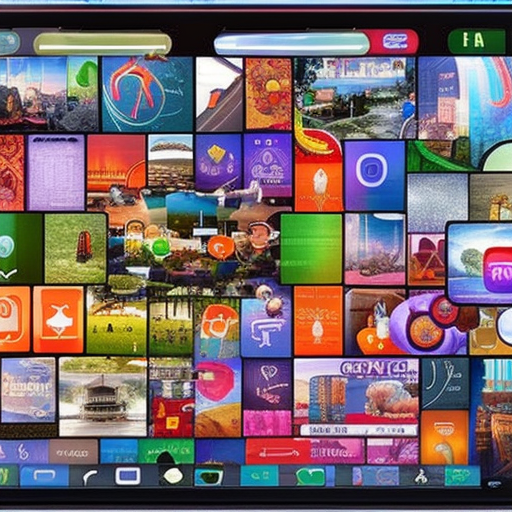Summary: Mobile apps have become an integral part of our daily lives, offering convenience, entertainment, and productivity. These applications are designed for smartphones and tablets, allowing users to perform various tasks, access information, and connect with others. With millions of apps available across different platforms, the mobile app industry has experienced exponential growth and continues to evolve with new technologies and trends.
Introduction
Mobile apps have revolutionized the way we interact with technology. These software applications are specifically developed for mobile devices, such as smartphones and tablets, and are available for download through app stores. They serve a wide range of purposes, from entertainment and social networking to productivity and health.
Types of Mobile Apps
There are several types of mobile apps, each catering to different needs and preferences. Some of the most common categories include:
- Social Media Apps: These apps, such as Facebook, Instagram, and Twitter, allow users to connect with friends, share updates, and explore content.
- Entertainment Apps: From streaming services like Netflix and Spotify to gaming apps like Candy Crush and Pokémon Go, entertainment apps offer endless hours of fun and enjoyment.
- Productivity Apps: These apps, such as Microsoft Office Suite, Evernote, and Trello, help users stay organized, manage tasks, and increase efficiency.
- Health and Fitness Apps: With apps like MyFitnessPal and Strava, users can track their exercise routines, monitor their diet, and achieve their fitness goals.
- Travel Apps: Apps like Airbnb, Google Maps, and TripAdvisor make traveling easier by providing information on accommodations, navigation, and attractions.
Mobile App Development
Developing a mobile app requires a combination of technical skills, creativity, and user-centered design. The process typically involves several stages, including:
- Idea Generation: This stage involves brainstorming and identifying a unique concept for the app.
- Design: Designers create wireframes and prototypes to visualize the app’s interface and user experience.
- Development: Developers write the code and build the app’s functionality, ensuring compatibility with different devices and operating systems.
- Testing: Quality assurance testers check for bugs, glitches, and usability issues to ensure a smooth user experience.
- Launch: Once the app is ready, it is submitted to the app store for review and approval.
App Monetization
There are various ways for app developers to monetize their creations and generate revenue. Some common strategies include:
- In-App Purchases: Offering additional features or content for a fee within the app.
- Advertising: Displaying ads within the app, either through banners, videos, or sponsored content.
- Freemium Model: Providing a basic version of the app for free and offering premium features or an ad-free experience for a subscription fee.
- Subscription: Charging users a recurring fee to access the app’s content or services.
Mobile App Trends
The mobile app industry is constantly evolving, driven by advancements in technology and changing user preferences. Some current trends include:
- Augmented Reality (AR) and Virtual Reality (VR): Apps that incorporate AR and VR technologies offer immersive experiences, such as virtual tours, gaming, and interactive learning.
- Artificial Intelligence (AI) and Machine Learning (ML): AI-powered apps can personalize user experiences, provide recommendations, and automate tasks.
- Internet of Things (IoT) Integration: Apps that connect with smart devices, such as home automation systems and wearables, enable users to control and monitor their surroundings.
- Blockchain: Blockchain technology is being utilized in apps for secure transactions, decentralized platforms, and digital identity verification.
Conclusion
Mobile apps have transformed the way we interact with our devices, offering a wide range of functionalities and experiences. From social networking and entertainment to productivity and health, there is an app for almost every need. As technology continues to advance, the mobile app industry will undoubtedly continue to grow and adapt, providing users with innovative and convenient solutions.












